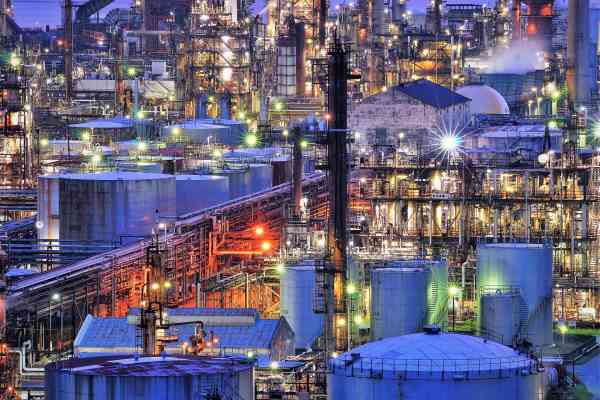December 20th, 2021 | 11:11 CET
Nikola, Clean Logistics, Plug Power - Drastic measures required
Germany raised its climate targets in the middle of this year and adopted binding emissions targets for the years up to 2045 - the target year for climate neutrality. Alongside the energy sector and industry, Germany's biggest emitter of greenhouse gases is the transport sector. However, this is the only sector that has not reduced greenhouse gas emissions in recent decades. Commercial vehicles account for around 35% of CO2 emissions. It is precisely here that quick and precise action is needed to ensure that the rosy plans are implemented. Smaller companies in particular far outstrip the large corporations in terms of know-how.
time to read: 3 minutes
|
Author:
Stefan Feulner
ISIN:
NIKOLA CORP. | US6541101050 , Clean Logistics SE | DE000A1YDAZ7 , PLUG POWER INC. DL-_01 | US72919P2020
Table of contents:

"[...] Why should a modular electrolyzer cost more than a motorcycle? [...]" Sebastian-Justus Schmidt, CEO and Founder, Enapter AG
Author
Stefan Feulner
The native Franconian has more than 20 years of stock exchange experience and a broadly diversified network.
He is passionate about analyzing a wide variety of business models and investigating new trends.
Tag cloud
Shares cloud
Clean Logistics is stepping on the gas
In contrast to the passenger car sector, which currently relies on battery-powered vehicles, by and large, research into heavy vehicles such as trucks focuses on hydrogen-powered engines, as this ensures a greater range and a shorter charging time. The market is enormous. In Germany alone, around 250,000 of the approximately 340,000 registered trucks would have to be climate-neutral by 2030 if the logistics industry is to meet the statutory CO2 reduction targets; in Europe, the figure is 2.3 million units.
Clean Logistics CEO Dirk Graszt recognized this problem early on and noted that large corporations are not able to initiate the necessary changes. With decades of experience in the logistics industry, in 2018, he joined forces with co-founder Dirk Lehmann, an engineer and specialist in alternative propulsion systems, to revolutionize freight transport.
Everything must go out
The solution sounds simple. Conventional 40-ton diesel trucks and buses used in public transport are to be converted to an emission-neutral hydrogen drive. The conversion involves removing everything fossil and replacing it with fuel cells, hydrogen tanks, batteries, electric motors, and an in-house control module that connects everything together. The Company's proven modular conversion technology is used for this purpose.
Clean Logistics has already been able to prove that the system works. For example, two buses were converted for the Uckermärkische Verkehrsgesellschaft. The prototypes for an articulated truck are currently in final development in cooperation with TÜV and are to be tested as early as 2022.
Signs point to expansion
In order to expand capacity, a binding letter of intent has been signed with the town of Winsen an der Luhe to purchase a commercial property on which the Company plans to build a new production hall with a floor space of 10,000 square meters. The quality of the Company's personnel will also be significantly enhanced. From the beginning of next year, the Board will be expanded considerably with three executives in Operations, Technology and Business Development.
Clean Logistics has already delivered, unlike several of its overseas industry peers. At the same time, the market capitalization of just under EUR 95 million is still manageable. Moreover, the closer the climate targets come, the more interesting the Company is likely to become for larger corporations.
Nikola delivers
Will the specialist for the development and production of hybrid trucks have a happy ending after all? The backstory of Nikola, which was floated on the stock market as a result of a spin-off, should be familiar to many by now. An ex-CEO and founder who became known through fake videos of driving prototypes and has since been convicted of fraud, the withdrawal of cooperation partners and ongoing delays in the schedule that have swallowed hundreds of millions of investors' money.
Nikola stood at an incredible USD 93.90 shortly after its June 2020 stock market debut, followed by a plunge below USD 8.90 last Friday, marking a new low for the year. However, right on time, Nikola released an announcement that could give legitimate hope for a rebound. The Company delivered the first of 100 planned Tre battery (BEV) pilot vehicles to Total Transportation Services, a California port trucking company. The delivery was on schedule, with the remaining zero-emission trucks to be delivered in stages over the next two to three years.
Following the release, the stock rallied over 7% to just under USD 10. From a chart perspective, a double bottom could form after the July low. The investment remains speculative. A trading opportunity up to the 200-day line at around USD 12.80 is definitely given.
Line broken
Plug Power, a leading supplier of fuel cells, has broken through the 200-day line to the downside. As a result, the next target is the broad support area at USD 26.50. Operationally, the US company announced an agreement to produce fuel cell buses with the South Korean Company Edison Motors.
Plug Power is to initially develop a prototype hydrogen-powered electric city bus with fuel cell drive. Plug Power's 125-kW ProGen fuel cell engine will power Edison Motors' electric bus platform. The companies expect the prototype fuel cell electric bus to be completed in the second half of 2022, with a mass-market platform available in the first half of 2023. The two companies also plan to cooperate on future mobility applications such as trucks, drones and ships.
The climate targets are there in theory. However, in practice, the parties involved face almost impossible tasks to implement the schedule. Clean Logistics aims to decarbonize the transportation sector, specifically heavy vehicles. Nikola puts an exclamation mark on this, while the signs point to consolidation at Plug Power.
Conflict of interest
Pursuant to §85 of the German Securities Trading Act (WpHG), we point out that Apaton Finance GmbH as well as partners, authors or employees of Apaton Finance GmbH (hereinafter referred to as "Relevant Persons") may in the future hold shares or other financial instruments of the mentioned companies or will bet on rising or falling on rising or falling prices and therefore a conflict of interest may arise in the future. conflict of interest may arise in the future. The Relevant Persons reserve the shares or other financial instruments of the company at any time (hereinafter referred to as the company at any time (hereinafter referred to as a "Transaction"). "Transaction"). Transactions may under certain circumstances influence the respective price of the shares or other financial instruments of the of the Company.
Furthermore, Apaton Finance GmbH reserves the right to enter into future relationships with the company or with third parties in relation to reports on the company. with regard to reports on the company, which are published within the scope of the Apaton Finance GmbH as well as in the social media, on partner sites or in e-mails, on partner sites or in e-mails. The above references to existing conflicts of interest apply apply to all types and forms of publication used by Apaton Finance GmbH uses for publications on companies.
Risk notice
Apaton Finance GmbH offers editors, agencies and companies the opportunity to publish commentaries, interviews, summaries, news and etc. on news.financial. These contents serve information for readers and does not constitute a call to action or recommendations, neither explicitly nor implicitly. implicitly, they are to be understood as an assurance of possible price be understood. The contents do not replace individual professional investment advice and do not constitute an offer to sell the share(s) offer to sell the share(s) or other financial instrument(s) in question, nor is it an nor an invitation to buy or sell such.
The content is expressly not a financial analysis, but rather financial analysis, but rather journalistic or advertising texts. Readers or users who make investment decisions or carry out transactions on the basis decisions or transactions on the basis of the information provided here act completely at their own risk. There is no contractual relationship between between Apaton Finance GmbH and its readers or the users of its offers. users of its offers, as our information only refers to the company and not to the company, but not to the investment decision of the reader or user. or user.
The acquisition of financial instruments entails high risks that can lead to the total loss of the capital invested. The information published by Apaton Finance GmbH and its authors are based on careful research on careful research, nevertheless no liability for financial losses financial losses or a content guarantee for topicality, correctness, adequacy and completeness of the contents offered here. contents offered here. Please also note our Terms of use.




